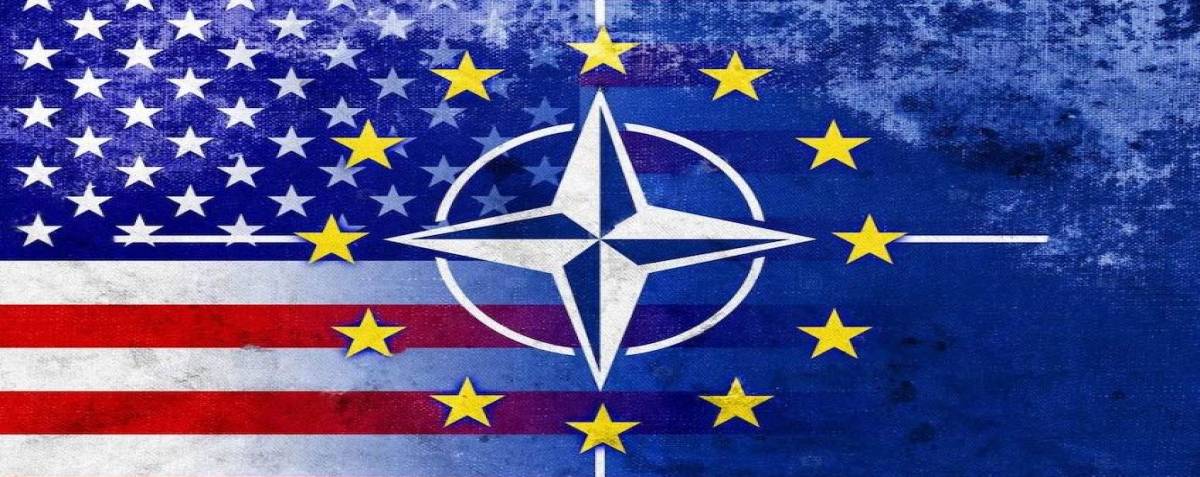1133 Views
Trump’s Worst Fear: Europe’s Secret Mutiny to Dismantle NATO and Ditch U.S. Dominance
In the rapidly evolving global geopolitical landscape, Europe finds itself at a critical juncture where it must reassess its strategic dependencies—especially on the United States. German Chancellor Friedrich Merz has emerged as a key figure in this debate, issuing a serious warning about Europe's excessive reliance on American military and political support. His statements reflect a broader push for Europe to achieve strategic autonomy, redefine transatlantic relations, strengthen intra-continental solidarity, and secure its standing in a multipolar world.
The German Chancellor has voiced deep concerns over Europe’s dependency on the U.S., particularly in light of shifts in American foreign policy under Donald Trump’s administration. “There are legitimate doubts that relations with the U.S. will remain as solid as before—Europe’s time has come,” he said. This strategic warning underscores the urgency of preparing Europe for a future in which American support may diminish. The return of Donald Trump, with his distinctive policies, has heightened these concerns—raising the likelihood that the U.S. might scale back its traditional military presence in Europe or even withdraw troops stationed since Russia’s invasion of Ukraine in 2022. Merz’s call acts as a catalyst for the EU to reassess its security and economic strategies, urging member states to prioritize resilience and self-reliance.
To confront this vulnerability, Europe is actively pursuing enhanced defense capabilities and strategic autonomy. Merz declared, “My top priority is to strengthen Europe as quickly as possible so we can gradually become truly independent from the U.S.” This goal is echoed in the EU’s White Paper for European Defense – Readiness 2030, which outlines a comprehensive strategy to reinforce Europe’s defense framework. The plan focuses on addressing capability gaps, supporting the defense industry, and improving operational coordination among member states. Financially, the EU has earmarked €800 billion, including a clause to increase defense spending by 1.5% of GDP (approximately €650 billion over four years) and a €150 billion loan for projects such as missile defense and cybersecurity. These initiatives aim to reduce Europe’s dependence on the U.S.-led NATO and build a defense architecture capable of independent operation.
However, redefining Europe’s relationship with the U.S. is a complex task requiring a balance between the need for autonomy and the value of transatlantic cooperation. Merz acknowledged the vital role of the U.S., particularly in resolving the Ukraine conflict, stating, “We firmly believe that without greater political and military involvement from the U.S., we cannot end the war in Ukraine.” Nonetheless, the rise of isolationist policies in the U.S. is pushing Europe to seek more equitable cooperation. Initially skeptical of NATO’s effectiveness, Merz suggested Europe might need a new defense structure—but after meeting with NATO Secretary General Mark Rutte, he softened his stance, saying, “The U.S. is essential for Europe’s security—now and for a long time to come.” This balanced approach seeks to preserve cooperation while simultaneously enhancing Europe’s capacity to act independently.
Another cornerstone of Europe’s strategic shift is boosting intra-continental solidarity. Merz’s diplomatic efforts—including meetings with Emmanuel Macron—highlight the importance of unity among European nations. In a joint press conference, Merz and Macron pledged to reinforce continental security, increase defense spending, and strengthen the Franco-German partnership that underpins the EU. EU defense initiatives also encourage member states to pool resources and align policies, promoting cooperation. This solidarity is vital for establishing Europe as a major player in a multipolar world, capable of collectively addressing shared security challenges. Merz’s vision aligns with broader EU efforts to build a “European Defense Union” where member states leverage common capabilities and coordinated strategies.
While Merz’s statements primarily focus on the U.S., they also send an indirect message to global powers such as China and Russia. By pursuing strategic autonomy, Europe signals its ability to engage with these countries from a position of strength. Merz expressed concern about the growing closeness between Beijing and Moscow and urged China to play a role in resolving the Ukraine conflict. A Europe with enhanced defense capabilities and unified policies can negotiate with these powers on equal footing, reducing perceptions of vulnerability.
Despite these ambitious efforts, Europe faces significant obstacles. The U.S. strategy of engaging with European countries bilaterally—rather than the EU as a whole—poses a risk of fracturing continental unity. Such an approach may weaken the EU’s ability to present a cohesive front, as bilateral agreements could prioritize national interests over collective goals. This fragmentation could undermine Europe’s global geopolitical position and hinder its ability to counter the influence of powers like China and Russia. Additionally, internal EU disagreements and domestic political pressures could impede the implementation of defense initiatives and pursuit of strategic independence. The success of Europe’s efforts hinges on its ability to overcome these challenges and maintain a unified approach.
Ultimately, Europe stands at a pivotal crossroads. Pressured by Germany’s warnings and driven by active EU defense initiatives, it is striving to reduce its reliance on the U.S. The pursuit of strategic autonomy through enhanced defense capabilities and intra-continental solidarity signals a commitment to building an independent Europe. However, America’s bilateral approach toward European nations presents a serious challenge that could jeopardize EU unity and weaken its global standing. As Europe navigates this complex path, it must prioritize cooperation and cohesion to ensure that its quest for independence strengthens—not threatens—its security and economic future in a multipolar world.
*Translated by Ashraf Hemmati from the original Persian article written by Amin Mahdavi

Comment
Post a comment for this article